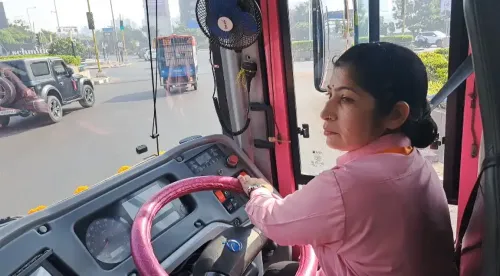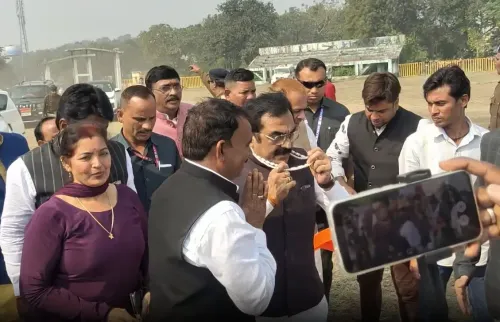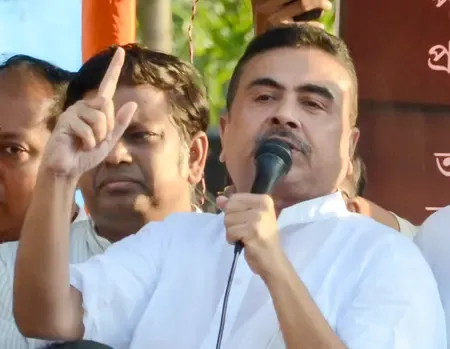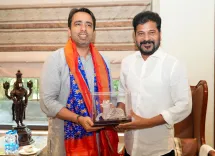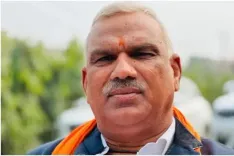Could Siddaramaiah Have Become Chief Minister If He Had Stayed with JD(S)?
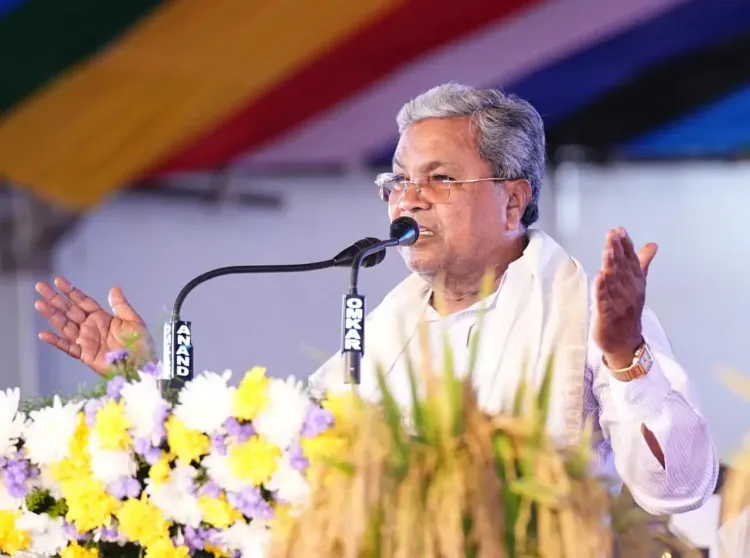
Synopsis
Key Takeaways
- Siddaramaiah's statement highlights the challenges he faced in his political career.
- His record of presenting 16 budgets showcases his experience and leadership.
- Cooperative societies play a crucial role in rural economic development.
- Support for milk producers reflects the government's commitment to agriculture.
- Inclusivity in governance is emphasized through community support.
Chamarajanagar (Karnataka), Nov 20 (NationPress) “Had I continued with the Janata Dal (Secular), I would not have stepped into the role of Chief Minister,” Siddaramaiah declared on Thursday during the inauguration of the 72nd All India Cooperative Week and his valedictory address. The Chief Minister elaborated, “Former Prime Minister H.D. Deve Gowda along with his sons would have prevented my ascent to the Chief Minister's position.”
“G.T. Deve Gowda, a senior leader and a significant figure in the cooperative movement, remains within JD(S) but stands in my support. He was with me until 2006, and though he stayed with JD(S) after my expulsion, he has now returned to my side in spirit,” he mentioned.
The CM recounted how during his initial budget presentation, he faced criticism, with some mocking him for being from the shepherd community, stating he “doesn’t know how to count sheep.” “This challenge motivated me to prove myself, and I ended up presenting the budget multiple times,” Siddaramaiah reflected.
As of now, CM Siddaramaiah has presented a total of 16 budgets, and he is gearing up for his 17th, solidifying his record for the highest number of state budgets presented by any leader in Karnataka.
He highlighted, “For the economic development of rural India, establishing one school, one gram panchayat, and one cooperative society in each village is vital — a vision set forth by the late Prime Minister Jawaharlal Nehru. His foresight fostered the growth of the cooperative movement nationwide.”
CM Siddaramaiah pointed out that “thanks to Pandit Nehru’s vision, Cooperative Week is celebrated annually on his birthday,” emphasizing the ongoing expansion of the cooperative movement across various sectors including agriculture, dairy, industry, and banking in Karnataka.
He remarked, “During my tenure as Minister for Animal Husbandry, I fully supported the independence and self-reliance of milk producers’ cooperatives. Presently, we produce one crore liters of milk daily, and our government is providing a subsidy of Rs 5 per liter, totaling Rs 5 crore per day for farmers.”
“We have raised milk prices twice, and I’ve ensured that this additional revenue directly benefits the milk producers,” he added.
“Since assuming the Chief Minister's role, we have initiated and executed programs aimed at the welfare of individuals from all castes and religions. The support from all communities in Chamarajanagar district is something I hold dear,” he stated.
He continued, “I have visited Chamarajanagar numerous times. There’s a superstition that a minister loses their position after visiting this district. However, each time I come here, not only does my position remain intact, but the strength of our party also grows.”
CM Siddaramaiah announced that “for cooperative society recruitments, priority will be given to individuals with cooperative diplomas and degrees, and the significance of cooperative principles will be integrated into educational curricula.”
When questioned by journalists regarding the possibility of contesting the 2028 election under Siddaramaiah’s leadership, he assured that a suitable decision would be made later, adding, “As long as the public desires it, I will keep presenting the budget.”
On his meeting with Prime Minister Narendra Modi, he mentioned the need for compensation due to the recent heavy rainfall and discussed issues concerning sugarcane growers, as well as dialogues held with farmers and factory owners.

